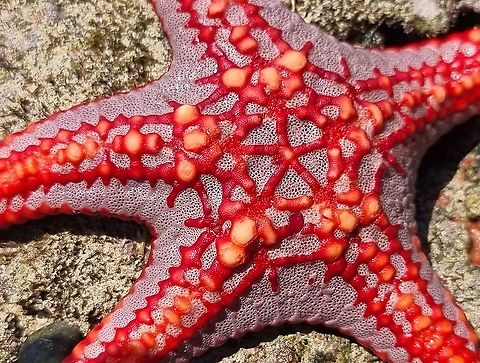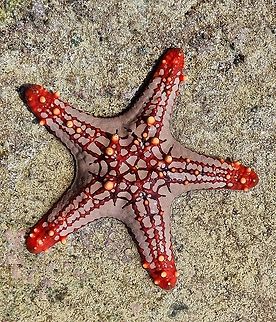
Appearance
''P. lincki'' grows to a maximum diameter of 12 in . It has numerous tubercles located along its five arms. These tubercles are bright red and extend upward from the arms. It has a gray body with red stripes that connect the tubercles. This creates an appearance of a grid made of interconnecting wires.The skeleton is composed of many calcareous ossicles and spicules. They are located inside the layer of connective tissue. This skeleton supports the large central disk.

Distribution
It is distributed in the western Indian OceanThe red-knobbed starfish can only be found in the Indian Ocean, mostly along the African coast and Madagascar, north to India and Sri Lanka. A small population is also present in Coral Bay, Western Australia.
They prefer sandy or muddy seabeds because it is easier for them to search and forage for food. While they are most often seen in shallow tidal pools, they can live in a variety of depths, down to 100 m deep. Red-knobbed starfish are carnivorous animals that eat a number of sea creatures.
Behavior
''P. lincki'' is active in both daytime and nightime. It is a popular aquarium specimen, but is considered incompatible with many other invertebrates, as it will eat soft corals, sponges, tube worms, clams, other starfish, and the like.It is also a heavily fished species for the curios trade, which contributes to the rarefaction of the species.
Food
''P. lincki'' is active in both daytime and nightime. It is a popular aquarium specimen, but is considered incompatible with many other invertebrates, as it will eat soft corals, sponges, tube worms, clams, other starfish, and the like.It is also a heavily fished species for the curios trade, which contributes to the rarefaction of the species.
References:
Some text fragments are auto parsed from Wikipedia.